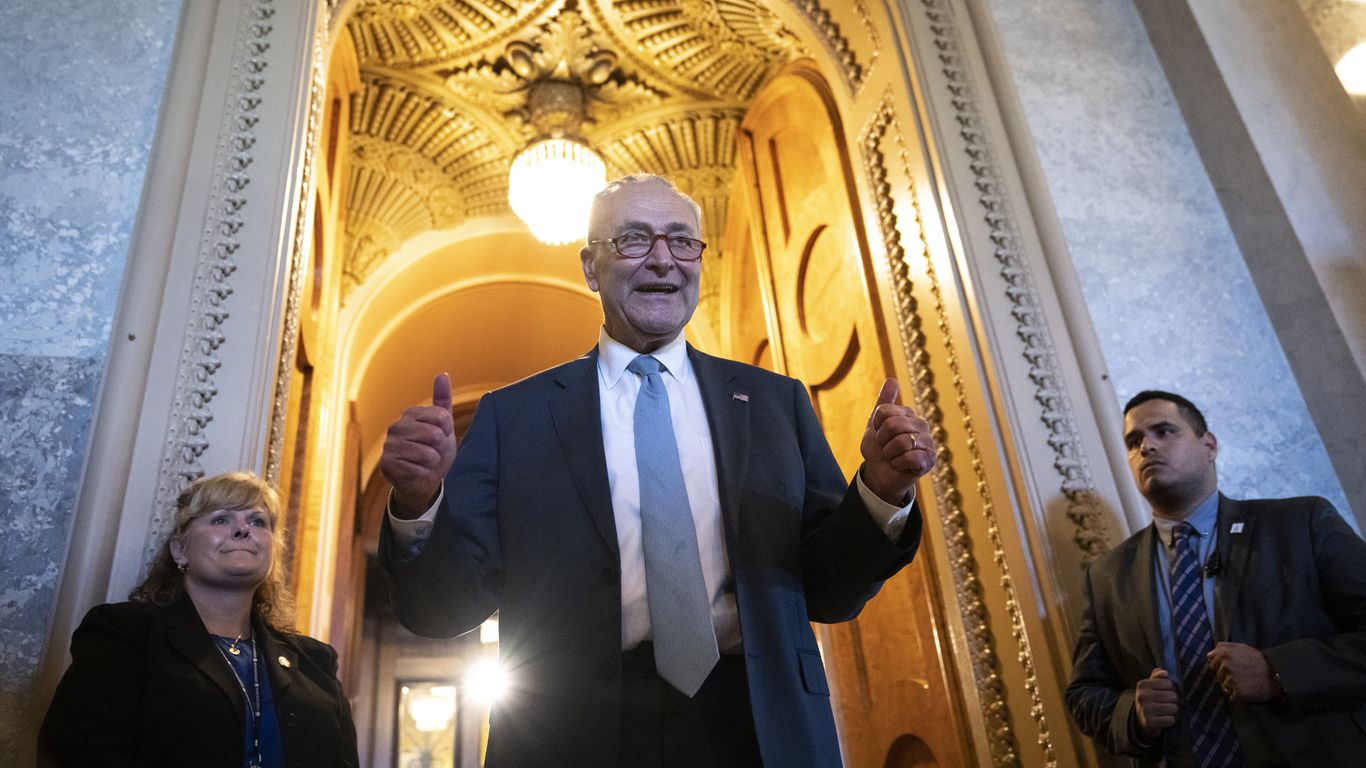Senate Democrats passed a $740 billion reconciliation package on Sunday that includes provisions that increase taxes on large corporations, address climate change and lower prescription drug costs.
Why it matters: The bill, though much smaller and less ambitious than what many Democrats wanted, has cleared its tallest hurdle and is expected to pass the House before heading to President Biden’s desk for his signature.
Taxes:
- The bill puts a 15% minimum tax on corporations that earn more than $1 billion in annual profits, which is projected to raise at least $258 billion over the next 10 years.
- It allocates $80 billion of additional funding over ten years for the IRS to in part hire additional staff members and strengthen tax collection and enforcement on corporations and high-income earners.
- The Congressional Budget Office estimates that the new IRS investment could raise $203 billion in new revenue over the next decade, resulting in a net gain of $124 billion.
- It does not include new taxes on families making $400,000 or less and no new taxes on small businesses.
Health care:
- The bill increases health care spending by $98 billion, primarily by extending enhanced Affordable Care Act subsidies create through the American Rescue Plan for an additional three years.
- It allows Medicare to negotiate the prices of certain drugs and puts a $2,000 cap on out-of-pocket prescription drug costs for people.
- It originally contained a provision that would have capped out-of-pocket spending on insulin for patients enrolled in private insurance to $35, though it was blocked by Senate Republicans who argued that it violated the rules of reconciliation.
Climate:
- The bill invests roughly $370 billion into initiatives to promote clean energy and reduce greenhouse gas emissions, likely becoming the most important climate bill in US history.
- It gives tax credits to clean energy technologies, like existing nuclear power plants and advanced nuclear technologies, clean hydrogen, carbon capture and storage as well as wind and solar power.
- It gives buyers who purchase North American-built electric vehicles up to $7,500 in federal tax credits to encourage the adoption of electric vehicles while jump-starting America’s electric vehicle industry.
- It creates a methane fee program to fine corporations that emit the powerful greenhouse gas above federal limits.
- Democrats have said the bill’s climate provisions put the US on a path to reduce its carbon emissions by up to 40% based on 2005 levels by 2030.
Go deeper: Biden’s BFD
.
